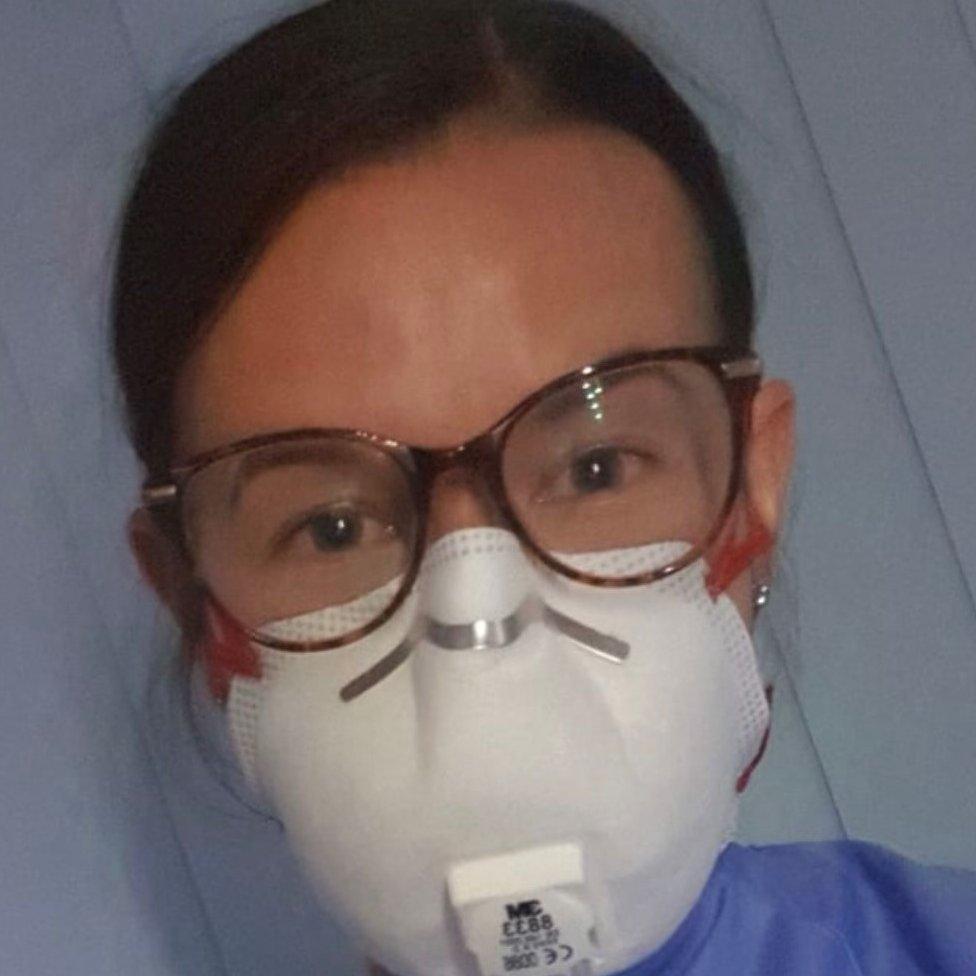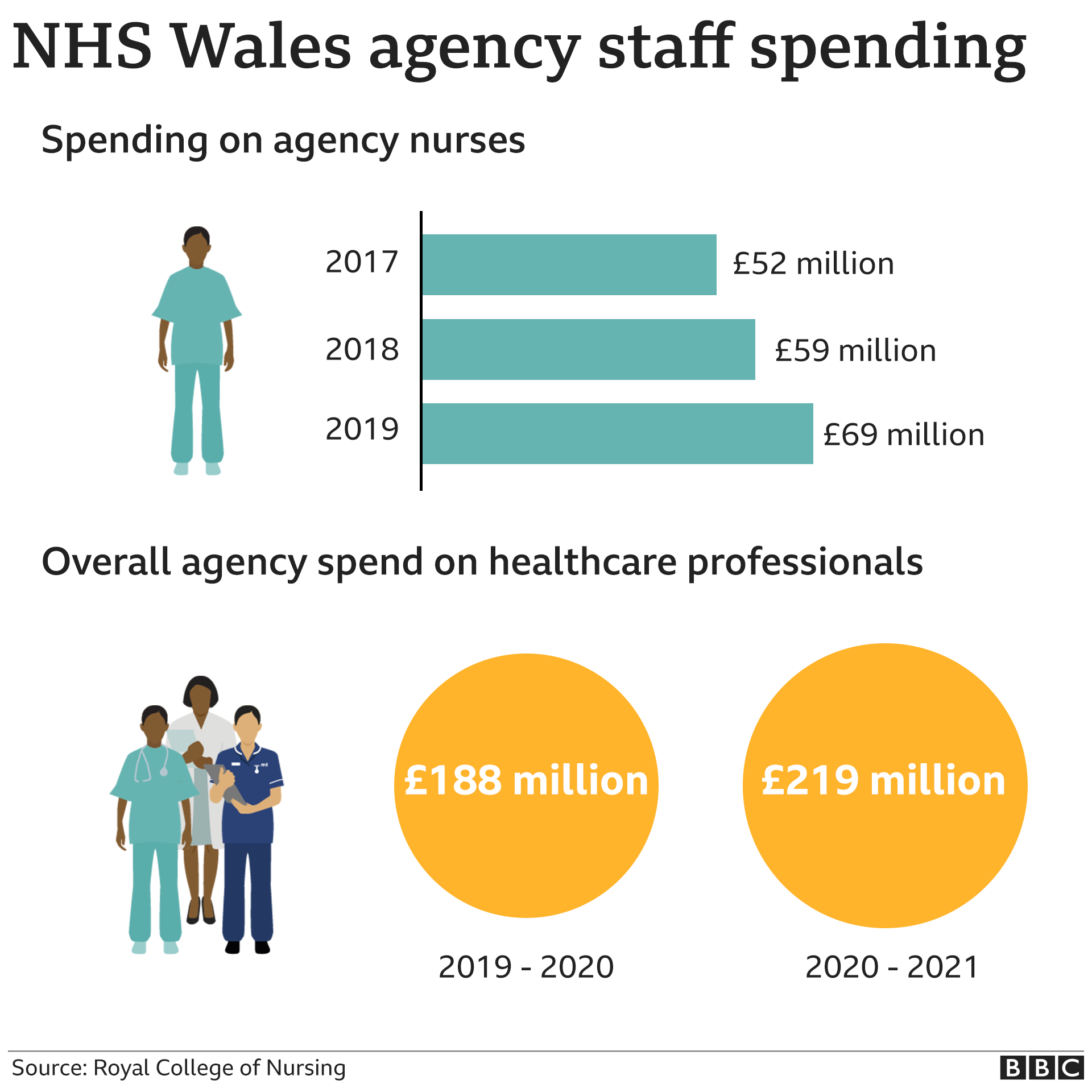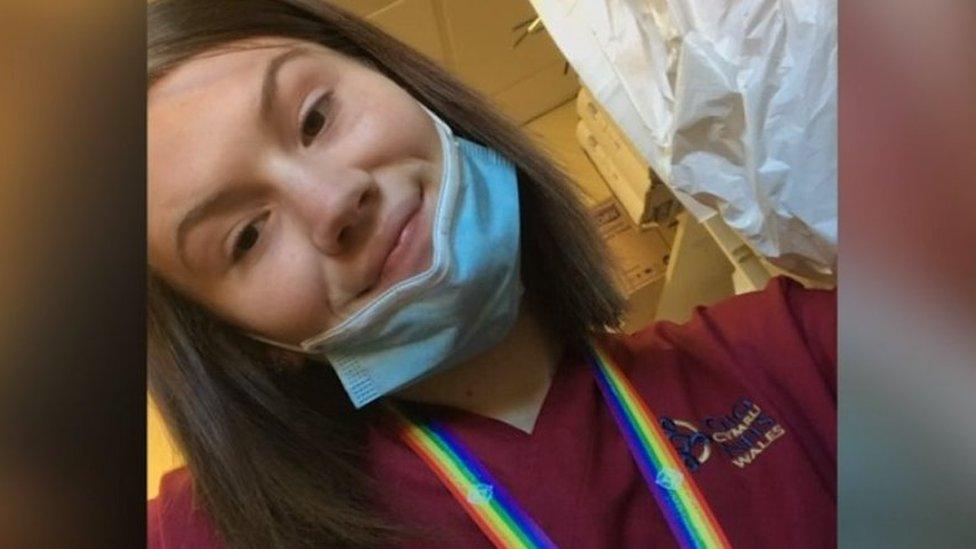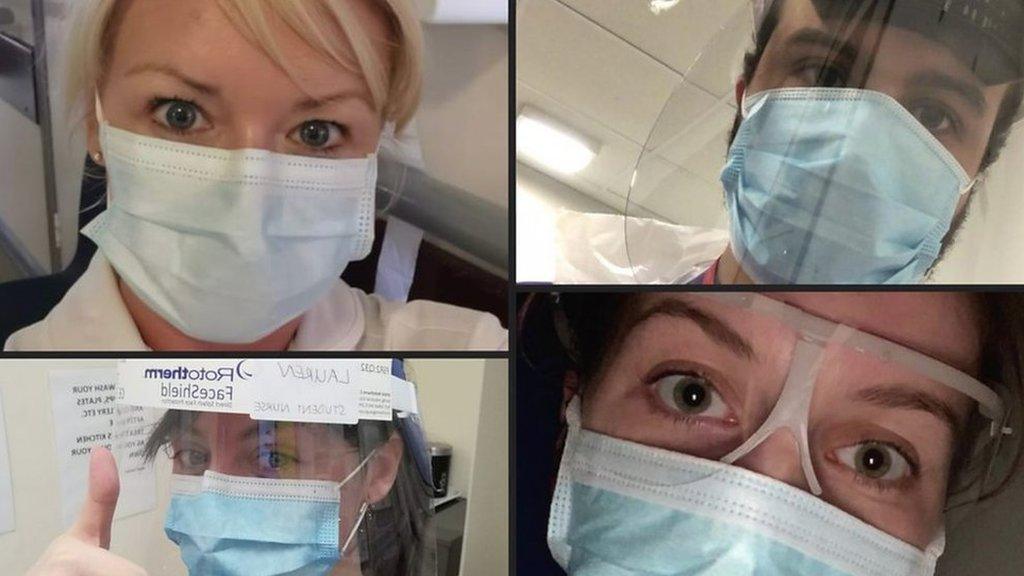Covid ICU nurse left job after 'torture' of pandemic
- Published
Covid left nurse crying for two hours after shift
A nurse who worked on an intensive care unit during the pandemic said she chose to leave a permanent role due to the pressure on her mental health.
Fern Osborne, 30, from Llanelli, worked at a hospital in Carmarthen and said leaving for agency work was "her only option" to be able to keep working.
She said she got to the point she hoped lateral flow tests would be positive so she did not have to go to work.
The Welsh government said there are schemes in place to enable flexibility.
'Staff feel stuck in their jobs'
Ms Osborne was working at Glangwili General Hospital in November when she decided she would rather "take the risk" of relying on agency work - which means no sick pay, pension contribution and or guaranteed work - rather than stay in her position as a staff nurse, because the job was having a toll on her mental and physical well-being.
She said it gives her more flexibility after leaving shifts crying.
She told Newyddion S4C: "I'm lucky that I have the option to do that because I have no children, only a mortgage but many staff feel like they can't leave and are stuck in the job even though they hate doing it now."
She said staff shortages, ongoing pressures and the lack of support made it harder to do her job.
"I would finish the shift exhausted, upset and drained and it wasn't sustainable," she said.

Ms Osborne says she got the point she was hoping for a positive lateral flow test so she did not have to go to work
Ms Osborne said she would "dread going to work" and in her 30 minute drive from Llanelli to Glangwili she had to "psych myself up for another shift because you wouldn't know what you were going to see".
She added: "During the first wave I felt like a fraud because I think we had one patient on ITU the whole time, but when the second wave hit it was non-stop.
"A patient would get admitted, then either leave and go on to the ward if they were better or die, and then another patient would come in. It was mentally and physically exhausting."
Ms Osborne was diagnosed with sciatica after picking a patient up and turning them over on the ventilator and was told by occupational health she was no longer allowed to work on the Covid ward.
Three weeks later, she was back.
"We were short staffed so I had no choice. By the end I was taking lateral flow tests and hoping they were positive just so I didn't have to go to work.
"That's when I knew I had to leave."
'Nurses are traumatised'
Coronavirus Class of 2021: The student nurses behind the masks
The Royal College of Nursing said the NHS is becoming "dangerously" dependant on agency staff.
Helen Whyley, Royal College of Nursing Wales director, said NHS nurses, particularly in senior roles, are "often demoralised or even traumatised by working in suboptimal or unsafe conditions for which they feel responsible while lacking the necessary authority to bring about change".
She added working for an agency allows them to use their skills without the burden of this but agencies are expensive for the NHS.

"Neither is it ideal for patient care: agency nurses will be less familiar with ward layout, policies, and equipment, and less able to provide continuity of care."
She said if a dependency on agencies continues, it risks health boards no longer directly employ staff to provide patient care and instead move all nursing care being outsourced.
"This is not a shift that should take place without a conscious government policy decision.
"If NHS Wales is to retain its own nursing staff, it needs to modernise its employment procedures to allow nurses more control over when they work."
Lisa Gostling, from Hywel Dda University Health Board, said: "We're sorry that the individual concerned has left our employment and appreciate the very difficult circumstances all our nurses, and indeed other staff, are working in as we respond to the ongoing pandemic.
"The health and wellbeing of all our nurses, along with every member of our staff, students and volunteers working within Hywel Dda University Health Board, matters greatly to us as an organisation."
She added that staff were regularly reminded staff to look after and discuss their own health.
A Welsh government spokesperson said: "The Welsh NHS currently employs historically high numbers of staff and currently has the highest number of nurses and midwives in training.
"We are very grateful to our workforce working across sectors and settings for all they have done and continue to do throughout the pandemic.
"Agency workers provide a very valuable additional resource during this time too."
They said NHS in Wales offers NHS organisations banks where nurses can benefit from national pay terms and conditions and can opt to work flexibly at times that suit them.

WHAT'S THE BIG IDEA?: Food for the mind, and inspiration for the soul
THE ASIAN WELSH: How immigration from the Indian subcontinent transformed Welsh health, culture and the economy

- Published16 November 2021

- Published11 June 2021

- Published19 March 2021

- Published19 November 2021
